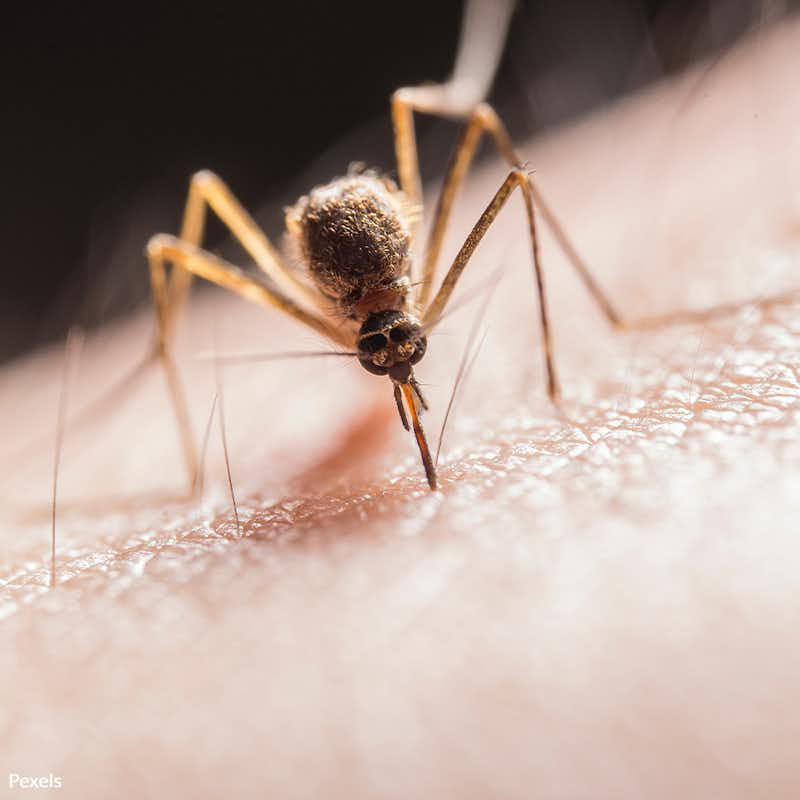Eliminate the Threat of Malaria in the U.S.
5,279 signatures toward our 30,000 Goal
Sponsor: The Breast Cancer Site
Malaria is a life-threatening disease transmitted by mosquitoes and it has resurfaced in the US. Take action for the health and safety of all Americans!

Join the fight against malaria and protect our communities from this life-threatening disease!
Malaria has reemerged in the United States, with cases of local transmission reported in Florida and Texas1. We cannot ignore the dangers it poses to our health and well-being. It's time to take action and reduce the risk and spread of malaria.
Malaria is primarily transmitted through the bite of infected female Anopheles mosquitoes2. Its flu-like symptoms, including fever, chills, headaches, and muscle aches, can escalate into severe complications and even death, especially for vulnerable populations3. While malaria outbreaks were once attributed to travelers, the recent local transmission cases demand our attention.
The resurgence of malaria is linked to increased international travel4. As travel returns to pre-pandemic levels, the likelihood of infection abroad and subsequent transmission within communities rises5. Mosquitoes act as carriers, biting infected individuals and passing on the parasite, emphasizing the need to address the underlying factors that contribute to its spread.
Climate change plays a significant role in the prevalence and spread of malaria6. Rising temperatures and increased rainfall create ideal conditions for mosquito proliferation and disease transmission, especially in urban environments7. The geographic distribution of malaria and the duration of its transmission seasons are also affected by climate change, necessitating proactive measures to combat its impact6.
While we await a universal malaria vaccine, ongoing research shows promise. The RTS,S vaccine has proven effective in reducing severe malaria cases among children in countries with high transmission rates8. However, further research and collaboration are needed to develop a vaccine that can protect everyone.
Together, we can make a difference. Help us reduce the risk and spread of malaria. Let's raise awareness, educate others, and support research and development efforts.
Pledge to reduce the transmission of malaria and protect our communities from this deadly disease!
- Emily Anthes, The New York Times (27 June 2023), "U.S. Sees First Cases of Local Malaria Transmission in Two Decades."
- Mosquito Magnet, Woodstream Corporation, Inc. (2022), "Anopheles Mosquito."
- Mayo Clinic (2023), "Malaria."
- Centers for Disease Control and Prevention (14 November 2018), "The History of Malaria, an Ancient Disease."
- Centers for Disease Control and Prevention (13 June 2023), "Malaria and Travelers for U.S. Residents."
- P Reiter, Environmental Health Perspectives (March 2001), "Climate change and mosquito-borne disease."
- Ah-Young Lim, Hae-Kwan Cheong, Yeonseung Chung, Kisung Sim, Jong-Hun Kim, Parasites & Vectors (2021), "Mosquito abundance in relation to extremely high temperatures in urban and rural areas of Incheon Metropolitan City, South Korea from 2015 to 2020: an observational study."
- Carla Drysdale, World Health Organization (6 October 2021), "WHO recommends groundbreaking malaria vaccine for children at risk."
The Pledge:
I pledge to take proactive steps to eliminate the threat of malaria in the United States. Malaria is a life-threatening disease caused by a parasite transmitted through mosquito bites. It poses serious health risks, including severe complications and even death, especially among vulnerable populations. It is crucial that we come together to eradicate this disease and create a healthier future for all.
To reduce the risk and spread of malaria, I commit to the following actions:
- Using insect repellent: I will apply insect repellent regularly to protect myself from mosquito bites, especially in malaria-prone areas.
- Wearing protective clothing: I will wear loose-fitting, long-sleeved shirts and pants treated with insecticide to minimize exposure to mosquitoes.
- Installing mosquito nets: I will use mosquito nets around my bed, providing an additional barrier against mosquito bites, particularly while sleeping.
- Eliminating mosquito breeding sites: I will remove any stagnant water sources, such as containers, flowerpots, or discarded items that can serve as breeding grounds for mosquitoes.
- Promoting proper sanitation: I will support initiatives that improve sanitation and waste management practices, reducing the availability of mosquito breeding sites.
- Educating others: I will raise awareness about malaria and its transmission, sharing information with my community to foster understanding and prevention.
- Supporting research and development: I will contribute to efforts to develop effective vaccines, treatments, and innovative mosquito control strategies through donations or participation in clinical trials.
- Seeking early medical assistance: If I experience flu-like symptoms, especially after potential exposure to mosquitoes, I will seek immediate medical attention to ensure early diagnosis and appropriate treatment.
- Encouraging responsible travel: I will promote safe travel practices, including the use of preventive measures such as antimalarial medications, mosquito nets, and insect repellents when visiting malaria-endemic regions.
- Advocating for public health initiatives: I will support policies and initiatives aimed at reducing the transmission of malaria, including mosquito control programs, research funding, and healthcare access for affected communities.
By pledging to take these actions, we can collectively reduce the risk and spread of malaria, protecting ourselves and our communities. Together, we can eliminate this disease and ensure a healthier future for all. Let us unite in the fight against malaria and work towards a malaria-free United States and a world free from the threats of this deadly disease.
Pledged by,